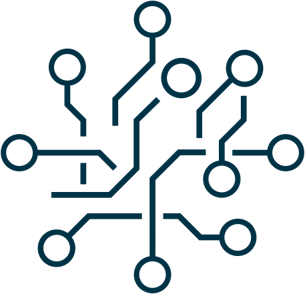The Growing Importance of Managing Data Privacy in a Regulated Business Landscape
Modern business operations today are made more difficult by data privacy requirements and laws due to the stringent use and management of personal data regulations. The adoption of rigorous data privacy regulations reflects the present scenario, leading to heightened reactions among various institutions.
The growing cyberattacks targeting sensitive data have also drawn organizations attention to improve data security and compliance. As a result, organizations must be diligent in their handling of sensitive data and ensure that they are in compliance with all applicable laws and regulations. A data privacy program in place and appropriate technological measures can protect both businesses and their customers, influencing business performance.
Without proper detection and remediation technologies, companies may also spend more time and money on responding to threats and recovering from a data breach (IBM and Ponemon institute, 2022) 1.
Understanding Data Privacy Management
In today's digital world, organizations must prioritize data privacy management to protect sensitive information and ensure regulatory compliance for data privacy.
What Is Data Privacy Management?
Data privacy management refers to the processes and strategies implemented by organizations to protect personal data while ensuring confidentiality. It encompasses the collection, storage, and sharing of data in a way that respects individual privacy rights. As businesses handle vast amounts of sensitive data, managing data privacy has become a critical aspect of operations to avoid data breaches and maintain trust with clients.
Managing data privacy involves ensuring that proper protocols are in place to control who can access certain data, how it is used, and how it is stored. To ensure compliance with evolving privacy laws, organizations must regularly assess their data handling practices and integrate robust security measures. This ongoing process not only secures sensitive information but also helps mitigate the risks of non-compliance, which can lead to fines or reputational damage.
Why Managing Data Privacy is Critical for Businesses?
Managing data privacy is no longer optional—it's essential for business success and customer trust. With regulatory landscapes rapidly evolving, businesses must prioritise continuous compliance to avoid legal penalties and reputational damage. Organisations that effectively manage data privacy demonstrate their commitment to protecting sensitive information, positioning themselves as reliable partners in today’s digital economy.
Key Components of Data Privacy Management
To build a resilient and compliant privacy framework, organizations must focus on core pillars that drive data protection efforts. The following six key components provide a strategic foundation for effectively managing data privacy across all functions and systems.
1. Governance and Accountability
Establishing a clear framework for managing data privacy across the organization:
- Appointing data protection officers (DPOs) or privacy leaders
- Defining roles and responsibilities
- Creating and enforcing privacy policies
- Ensuring executive support and oversight
2. Data Inventory and Mapping
Understanding what data is collected, how it flows, and where it is stored:
- Identifying personal data types
- Mapping data lifecycle (collection, use, storage, sharing, deletion)
- Classifying data according to sensitivity and legal obligations
3. Privacy Risk Assessment
Evaluating potential privacy risks and the impact of data practices:
- Conducting Data Protection Impact Assessments (DPIAs)
- Reviewing third-party risks
- Identifying regulatory and ethical risks
- Prioritizing mitigation efforts
4. Privacy Policies and Notices
Developing clear, transparent policies and communication:
- Drafting internal and external privacy policies
- Creating consent forms and privacy notices
- Ensuring compliance with regulations like GDPR, CCPA, etc.
5. Training and Awareness
Educating employees and stakeholders on privacy responsibilities:
- Regular privacy and security training
- Awareness campaigns
- Role-based training for staff handling sensitive data
6. Monitoring, Auditing, and Incident Response
Ensuring continuous vigilance and preparedness to address privacy issues
- Monitoring for policy violations or data breaches
- Auditing privacy practices and controls
- Establishing data breach response plans
- Logging and reporting incidents as required by law
The Impact of Poor Data Privacy Management
Continuous compliance with data protection laws like the GDPR (General Data Protection Regulation) and the HIPAA (Health Insurance Portability and Accountability Act) and PCI DSS (Payment Card Industry Data Security Standard) is critical when overseeing data security. Data privacy ensures the proper handling and security of sensitive data inside an organization as it centers around these three key questions:
- What data is being collected?
- Who has access to the data?
- How is the data being used?
Inadequate data privacy measures may lead to non-compliance and data breach incidents, exposing organizations to the following consequences:
1. Hefty Costs of Non-Compliance
Companies that don't comply risk hefty penalties of up to 4% of their worldwide sales. Without proper detection and remediation technologies, companies may also spend more time and money on responding to threats and recovering from a data breach (IBM and Ponemon institute, 2022)1.
2. Reputational Damage and Loss of Customer Trust
Nearly nine in ten people (87%) stated they would not do business with an organization because of security concerns. 71% of respondents said they would no longer do business with an organization that disclosed private information without first obtaining consent2. When customers lose faith in a business, it may hurt its bottom line even more than a hefty punishment.
3. Risk of Business Secrets and Sensitive Data Leaks
While this may not be directly addressed by current data privacy laws, failing to protect trade secrets and sensitive data can weaken a company's market position. In order to avoid missing out on lucrative prospects stemming from initiatives like the development of groundbreaking new products, businesses must take precautions in protecting personal data and confidential information

Non-compliance with data privacy laws in more and more jurisdictions will also restrict an organization's potential customer base. A data privacy program can thus help organizations fulfill their legal responsibility to operate lawfully in all jurisdictions, protect their sensitive data and reputation, which enable them to grow their business and gain benefits from their data usage and compliance.
Implementing privacy safeguards, however, may need the coordinated efforts of several teams across an organization to complete a number of specific objectives. Manual procedures in this program are also inefficient and prone to mistakes, putting businesses at risk of failing to meet regulatory requirements. Organizations should thus embrace more advanced and automated privacy management solutions to facilitate the workflows of their data privacy programs.
Key Tasks in Managing Data Privacy for Compliance
According to Gartner, "privacy management" refers to either a framework or a technology that helps businesses evaluate their data processing operations for compliance with data privacy laws. By implementing data governance best practices, organizations can adopt a comprehensive approach that includes both technical solutions and organizational policies to streamline the process of handling sensitive data and prevent data breaches.
Here are the key data privacy management tasks to aid in regulatory compliance and data security:
- Conducting regular privacy risk assessments: identifying potential privacy risks, evaluating their likelihood and impact, and implementing measures to mitigate or eliminate them.
- Developing and implementing privacy policies: ensuring that employees and stakeholders understand the organization's privacy practices and expectations.
- Responding to data breaches: ensuring a plan in place to quickly and effectively respond to any breach, including identifying the cause of the breach, containing the damage, and notifying affected parties.
Overseeing data security in an era of evolving regulations and increasing volumes of sensitive information requires modern tools that can automatically collect, identify, and control access to stored data. They also support continuous compliance by facilitating privacy impact assessments, verifying data processing against legal requirements, and tracking incidents of unlawful data disclosures—enabling swift investigation, correction, and reporting.
Data privacy management tools can also facilitate mechanisms for cross-departmental collaboration on customer or DSR/DSAR requests for data access, modification, or deletion from sources like IT departments. Organizations can leverage data privacy management solutions to automate tedious operations, increase efficiency and transparency, and make use of their reporting capabilities for compliance.
Essential Features of an Effective Data Privacy Management Solution
Businesses cannot afford the consequences of data breaches and non-compliance. With the increasing complexity of data privacy laws and growing volumes of sensitive information, organizations need robust data privacy management solutions. These solutions support continuous compliance, improve data security, and streamline business-critical processes.
When implementing corporate data privacy policies, organizations should prioritize key features that enhance security, regulatory adherence, and operational efficiency.
Automated Compliance Monitoring
Automated tools can be used to monitor data privacy regulations and track adherence in real-time. These solutions conduct privacy impact assessments, verify processing activities against regulatory requirements, and generate audit-ready reports to mitigate compliance risks.
Secure Data Storage and Encryption
Effective data privacy management ensures sensitive information remains protected both at rest and in-transit. Robust solutions use encryption protocols to protect stored data across cloud and on-premises environments, preventing unauthorized access and reducing the risk of data exposure.
User Access Controls and Authentication
Data security starts with strict access control measures. Organizations should implement role-based access controls (RBAC) and multi-factor authentication (MFA) to ensure that only authorized personnel can access sensitive data. This approach strengthens data privacy management by minimizing internal and external threats.
Incident Response and Breach Management
A proactive incident response strategy is essential for mitigating the impact of data breaches. Modern data protection and security management solutions offer real-time monitoring, automated threat detection, and rapid response capabilities to contain breaches, investigate root causes, and comply with reporting requirements.
By adopting solutions with these key features, businesses can enhance their data privacy management practices, protect sensitive information, and comply with evolving regulations.
Benefits of Data Privacy Management
Data privacy management is more than just a regulatory requirement—it's a crucial factor in building a secure, compliant, and trustworthy. business environment. It allows organizations to safeguard sensitive information, ensure continued compliance, and enhance operational efficiency.
Below are the key advantages of implementing strong privacy safeguards:
1. Enhanced Data Security
Managing data privacy helps organizations strengthen their overall security posture by ensuring that sensitive data is protected at every stage. Implementing data privacy management measures such as encryption and access control reduces the likelihood of data breaches and unauthorized access.
2. Maintaining Continuous Compliance
Data privacy regulations are continually evolving, with new laws being introduced regularly. Managing data privacy not only allows organizations to stay ahead of these changes but also ensures continuous compliance with international regulations like GDPR or CCPA. Compliance minimizes legal risks and the possibility of costly fines.
3. Building Customer Trust
Consumers are becoming more aware of their data rights, and their trust in businesses depends heavily on how their personal information is handled. By effectively overseeing data security, organizations demonstrate their commitment to protecting customer data, fostering loyalty, and enhancing their reputation.
4. Improved Business Operations
Optimizing data privacy management enhances operational efficiency by streamlining data organization and categorization based on compliance requirements. This structured approach simplifies data handling, making it easier for businesses to respond to audits, regulatory inquiries, and consumer requests.
Conclusion
Organizations need a robust data privacy program to achieve compliance, strengthen security, and prevent data breaches that can drive success in the long run.Employing privacy-by-design strategies can help businesses ease the strain of handling sensitive data across their systems. Organizations should consider the effective functions of data privacy management solutions that can align with their needs and help them stay ahead of privacy risks.
Frequently Asked Questions
1. What is data privacy management, and why is it important?
Managing data privacy involves implementing processes to protect sensitive personal information and ensure compliance with privacy regulations. This is vital to avoid breaches, maintain customer trust, and ensure continuous compliance with evolving legal requirements. Learn more about how Adnovum supports businesses in managing data privacy effectively.
2. How can organizations ensure continuous compliance with evolving privacy laws?
Organizations can ensure continuous compliance by adopting robust data protection policies, staying updated on regulatory changes, and leveraging automated tools to monitor data handling. Regular audits, staff training, and partnering with trusted providers like Adnovum further strengthen compliance efforts.
3. What are some best practices for managing data privacy?
Best practices include implementing access controls, encrypting sensitive data, conducting regular risk assessments, and providing employees with ongoing training. Transparent documentation and customer communication are also key. Learn more about why Adnovum is a trusted partner in building secure and transparent data privacy frameworks.
4. What are the risks of poor data privacy management?
Poor data privacy management can result in breaches, legal penalties, loss of customer trust, and reputational damage. Managing data privacy effectively helps mitigate these risks, ensuring organizations remain compliant and secure. For expert assistance, reach out to Adnovum’s global offices.
5. How does effective data privacy management benefit customers?
Effective data privacy management ensures customers’ personal information is handled securely and gives them control over their data. This transparency builds trust and fosters long-term customer relationships, aligning with Adnovum’s commitment to delivering secure and reliable solutions.
📩 Sign up for our newsletter and gain access to exclusive executive insights and event invitations.
References:





